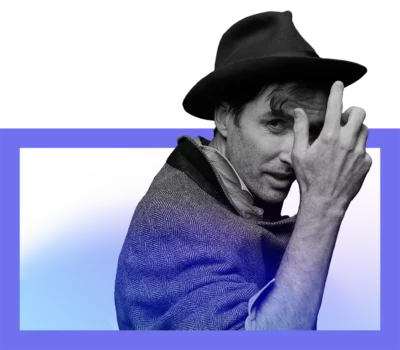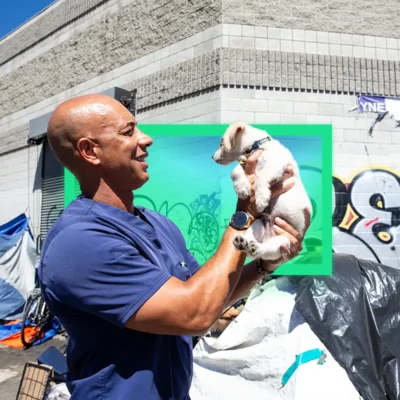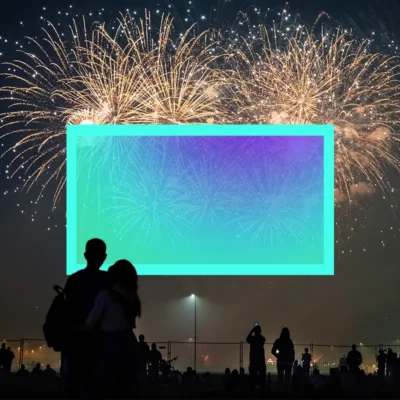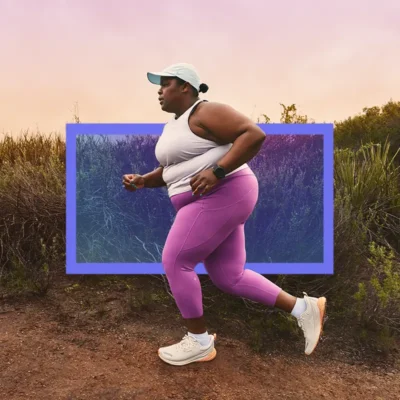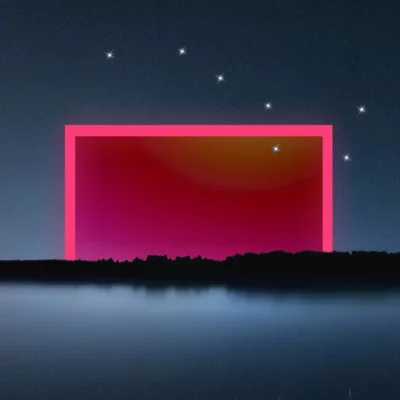Listening to the space around you
The chaotic nature and noise of life as a musician — touring from city to city — eventually erodes Andrew Bird’s ability to hear the music that is really inside of him. In a courageous effort to understand the faint calling of sound playing in his head, Andrew deserts his Chicago apartment for a rural piece of land where he believes an old farmhouse might unlock his personal renewal as an experimental multi-instrumentalist musician. There inside the reverberating wooden walls of a dilapidated barn, he begins to recalibrate — seeing, sensing, and interpreting the space around him musically. Rather than imposing his vision on the world, Andrew’s music becomes a reflection of what the surrounding environment is trying to tell him. He learns that sometimes a sense of connectedness is easier to achieve alone, where you’re able to find out what’s happening inside you in order to make it sing outwards.
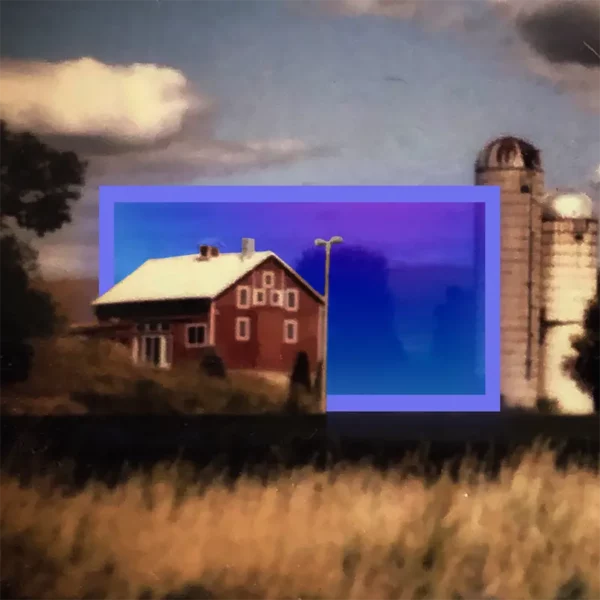
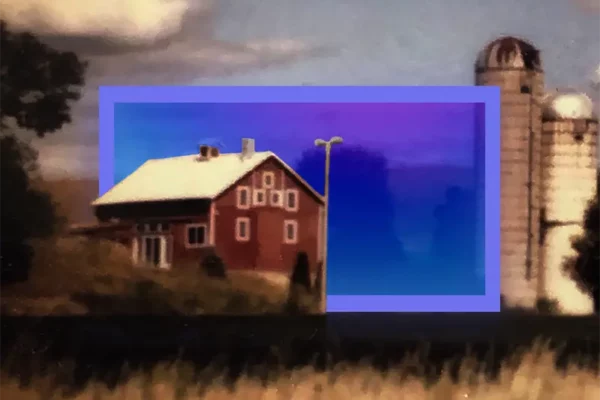
Table of Contents:
Transcript:
Listening to the space around you
ANDREW BIRD: While I’m fixing a snack I’ll keep the loop playing. And I start experimenting with ways my voice might couch itself inside of the loops. I step outside the barn and still hear the music coming through my old Fender Twin amp, blowing out through the windows. Fifty, sixty yards outside the barn, I can still hear the music all around me. As I turn the corner to the barnyard, there are two old empty silos that I sometimes play and whistle in. They have this extraordinary reverb. I start to notice that what’s coming in through my eyes affects what I hear. And then how what I hear affects what I see. And this has a profound effect on the music I’m making.
ROHAN GUNATILLAKE: Andrew Bird is a beloved indie rock multi-instrumentalist, singer, and songwriter best known for his unforgettable craft in looping violin, whistling, and voice. If you’ve not seen him perform, you must.
In today’s Meditative Story, Andrew describes a creative era in his life where he trades a Chicago apartment for a countryside barn. There he finds a place where he can finally hear himself, and the open space around him. It’s a place where old timber and aged windows become the studio for an experimental new genre of music emerging from inside him.
In this series, we blend immersive, first-person stories with mindfulness prompts to give you a deep sense of wellbeing at any time of the day. From WaitWhat and Thrive Global, this is Meditative Story. I’m Rohan, and I’ll be your guide.
The body relaxed. The body breathing. Your senses open. Your mind open. Meeting the world.
BIRD: The day I move out to my family’s old farm from my Chicago apartment, I spend hours loading up everything I can squeeze into my 1990 Dodge Ram van Holiday Coach special. Every inch of space is employed – on the seats, underneath them, in the back, piled up to the ceiling. I throw out what I can’t pack. I put my record collection in storage. It’s an icy cold winter day. The winds from Lake Michigan are blustery and I’m doing everything myself, without any help. This loneliness is something I will come to know.
So I get to the farm at dusk. I am still working on the place, still staining boards that will go on the roof of the barn where I’ll sleep and work. The sky is purple and it begins to snow. I stand before three hundred acres of corn and soybeans, forest and springs on the hilly country around the glacier-scarred lands of the Upper Mississippi valley.
On these old farms the first things that are built are the barns. This one resembles a child’s drawing. It’s your classic, midwestern, red with white trim. A little dome-like cupola sits up top with a weather vane. The structure is quarried out of the side of a limestone hill. It’s picturesque.
It’s here that I wrote my first song, on the front porch of the farmhouse, when I was eighteen. It was called “The Nothing Doing Waltz.” The farm has always felt like a creative place, an inspiring place.
Cows stand outside in the barnyard. Their tongues make a distinct abrasive sound as they lick the ice off the concrete wall. It’s a monochromatic landscape, primarily gray and white with dry dead grasses, that sandy color of a golden retriever.
I go out to the coop to check on the chickens. As I round the corner, on the back of my grandfather’s ’73 Chevy pickup truck is a peacock. Its big, prehistoric-looking claws grip the back of the truck. Its tail feathers drape down over the side, all the way down to the ground. It has its hackles up, and it looks at me. The chickens are nervously cooing in the coop. They’re like freaking out over this giant bird stalking them.
Am I delirious? I think for a moment I might be hallucinating. This is Illinois, in February. Not the ideal habitat for a peacock. I keep returning to the coop to look at it again, to see if it’s real. How is it surviving through the winter? I picture it jumping over fences and bounding through the snow amidst the coyotes and wolves and all of the predators out here. They could see this thing coming from miles away. I came here to get away from the city, but this strange new reality is nowhere close to anything that I could have anticipated.
At this moment, it occurs to me that I haven’t really thought this thing through at all. I thought I’d bring my band out here and make records and not worry about paying for studio time. I thought my friends would come and hang out. But I forget that no one has a car. There’s no train that comes out here. Standing out here in the snow it suddenly comes to me as something of a revelation: This is the beginning of my solitary adventure. So how did I get here?
I spend my 20s moving around different neighborhoods in Chicago, writing songs, playing clubs and dive bars, working the local scene. I’m trying to get a foothold to build an audience. I’m wrapped up in the romance of being in a band, and touring. I do this for eight long years, until the romance begins to wear thin. I’ve hit a wall. I’m broke all the time.
One night, I talk to one of the owners of the Hideout, which is a live music bar in Chicago. I tell him I want to get out of the city for a while. I want to step away from the density of my urban existence. The owner says, “No, man, you’re 29. You should go to New York or LA.” But that doesn’t feel right to me; to go where the action is. I’m craving exactly the opposite.
In the city I can spend whole days without looking more than a few feet in front of me. It’s affecting the music I make. My music feels … busy, dense, and packed full of ideas and directions that I veer into. It feels restless. I need to get out from underneath the canopy of these apartment buildings. I feel the need to slow down and step away from the noise that is constantly looping in my brain. I just want my own patch of land, and a place to work.
GUNATILLAKE: Do you share Andrew’s need to slow down and step away? For him it was a patch of land in the countryside. What calls you?
BIRD: We would go out to my family’s farm on weekends when I was growing up, but no one lives there now. I step into the lower level of the barn. It’s made with no nails, it’s all interlocking wood beams. It’s a really beautiful structure. The back wall of the lower level, where the cows are stabled, is solid limestone. The rest of it is just this large open space. I can see the grass growing through the walls. A family of raccoons live up in the cupola. There are droppings everywhere. It’s falling apart. It’s certainly not livable. But, this is exactly where I need to be. It’s a place where I can slow down and find out what I really have going on.
I talk to a local carpenter and we draw up a plan. There is a loft for sleeping. Underneath the loft is a kitchen and bathroom. The rest is just open space for my studio. It takes us five months and a tremendous amount of work to get it ready. I feel a little haunted for the first couple of weeks, and a little uneasy, kind of spooked. I have come from an urban place and now everything is so, so quiet.
I have to recalibrate what I’m seeing: the distances before me, the pace of a day, and the amount of space between ideas. And most of all the way I’m hearing music. I start to see in a way I haven’t seen before, particularly when I look up at the sky or at the horizon.
One afternoon I pause and look out over the valley, I see a storm rolling in. I wait. I watch it approach. I see the cumulus clouds, thunderheads rising up over the Mississippi River and then coming over towards the farm, “Here comes a storm. Here it comes.” I can feel the rain linger on my skin. It lingers for a few moments, watering the ground around me, and then moves on. I watch the weather system march across the sky. That just doesn’t happen in the city.
I look out the window of the barn and see the leaves of the tree jostle in the wind as I compose. Time slows down. And I start thinking about how the music I am making now affects the way I look at that tree. I feel as if I am in a sensory deprivation chamber.
GUNATILLAKE: Join Andrew here. Listening underneath all the noise. What is here? Take it in with a breath. Release and just be.
BIRD: I start messing around with a looping pedal on my violin. I click a button and I’m able to record myself. I then play back this phrase and compose on top of it. The earlier phrases fade out as I layer on new ones. I keep recording myself on top of myself. Revolving patterns accumulate, layers over layers.
The loops I’m creating aren’t melodic, per se. They don’t have a narrative. I can’t tell which way is forwards or backwards, up or down. They have no beginning, middle, and end. I get so many layers going that I have almost every note in the scale on this loop. I then shift down an octave, I discover a low emotional din, like when you’re in a room and you hear so many people talking that you’re unable to pick out any single voice or story.
I’ve never been interested in gear or the technical side of things and how they work, but there is something about this pedal that allows me to expand on my instrument while keeping it on a human scale. I start with one idea and layer so many things on it that it becomes something entirely new five minutes later. There’s something about the quick and dirty of it, the instant gratification of taking my instrument and making it into something more expansive. It’s completely intuitive. Notes spill outside of the bar lines. They diffuse like a fog, they’re blurry.
Now here’s one of the key parts to this looping thing: When I want to move on to a new idea, I have to erase the old one. I can’t be too precious about my ideas. I have to say goodbye to the old idea forever to start over, to try something new. Eventually I improvise my way into something that works.
It’s spring now. I’m on the farm for two or three weeks at a time, not speaking to anyone. I get up in the morning, get eggs from the chickens and fresh asparagus from the garden and make an omelet and a pot of coffee. I start making loops in the morning and the next thing I know, the sun is going down. I am so deeply, deeply in it.
While I’m fixing a snack, I’ll keep the loop playing. And I start experimenting with ways my voice might couch itself inside of the loops. I step outside the barn and still hear the music come through my old Fender Twin amp, blowing out through the windows. Fifty, sixty yards outside the barn, I can still hear the music all around me. As I turn the corner to the barnyard there are two old empty silos that I sometimes play and whistle in. They have this extraordinary reverb. I start to notice that what’s coming in through my eyes affects what I hear. And then how what I hear affects what I see. And this has a profound effect on the music I’m making.
Anyone who spends that much time alone is going to start to battle with inner demons. These are some long days and weeks to be wrestling with my work. Not speaking with anyone for long expanses of time, I am kind of losing my mind a little bit. I ask myself, “What made me leave my community to spend so much time alone? Is this a natural human impulse?” In certain cultures it’s a fate worse than death to be ostracized, yet it’s my choice. I pursue it, I embrace it.
There’s something I access in myself away from the noise of my day-to-day ambitions. Discovering these amorphous, gaseous-state loops, I stumble into what feels like the weather system rolling through the valley.
I remain on the farm for about three years. I am not really aware of an audience when I write. There isn’t any purpose to what I am doing. But I know it is profoundly important for the music I am making, the atmospheres I am creating, and the textures. Before this, my songs took a lot of twists and turns and had all sorts of stylistic mashups. Now I feel like I can write a song that has only two chords in it, or even just two notes in it, and have it be compelling.
Looping is by nature repetitive. Meditative. Repetition has always been my biggest complaint against pop music. Why do they keep driving home that chorus? But the loops force me to embrace repetition. To see it as a virtue. To be more spare and minimal.
My life on the farm is not all such a blissful experience, though. It is not easy. I never think: “Here’s the plan, I’m going to do this solo thing and take it on the road.” But that’s exactly what happens.
Now and then I come back to Chicago and crash on couches. I can’t really afford two places. It’s a transient existence. I go from looping all day by myself to loading up my van and touring by myself. I load in all my equipment to a venue, set it up, play the show, jump offstage, sell merch, talk to people, settle up the show and then go back to the hotel, or wherever I am staying. I have the show money in one pocket and the merch money in the other and I throw it on one of the double beds and collapse from exhaustion. Next morning I get up and drive eight hours and do it again. I do this for weeks and weeks and then return to the barn.
During this time, my main social interactions are from the stage. Being on stage is safe. Because I have an almost ceremonial reason to be there. I can express myself better to a couple hundred people in a room than I can to a single person. On stage I begin to translate what I have been practicing, and I realize that it actually works. The performances are compelling. My music doesn’t feel false, or forced, as I feared it might.
One evening, I open for friends of mine at the Abbey Pub in Chicago. It’s a last minute thing. I bring my looping pedal to the gig. I show up thinking no one is going to go for this. People are going to think it’s a joke. They’ll holler from the crowd, “Where’s the band? I paid good money for this!”
I am so used to the struggle to get people to come out to my shows that I come back after getting a coffee and see that there’s a line and I think, “Oh, who’s playing tonight? Who’s my competition?” But they’re actually coming to see me. And I have to think that maybe it’s because I am doing this really difficult thing. Because I found out what is really happening inside of me. I figured out how to project it out of me, to an audience, and it doesn’t seem to sound like other things out there. And people notice that.
A sense of connectedness is easier to achieve by myself. Playing with a band is inherently a social experience. It is important, but sometimes you start playing for your bandmates and less for the audience. Performing solo, I take a personal, internal world and project it outwards. I can be flexible. I don’t have to consult anyone before I make a spur-of-the-moment decision.
Eventually I decide I’ve spent enough time on the farm. It’s a very strange existence and I recognize that it can’t sustain itself. But now I know that I can take what I’ve learned with me, that my time at the barn is now a portable thing. I don’t have any trouble accessing that feeling, taking it with me into any environment. It’s so invaluable I’m not inclined to forget it.
Years later I still follow that thread in everything that I do. All of my music – all of my life – is influenced by my environment. Rather than imposing a vision of mine, I’m able to be fully present in a space, and to embrace it, listen to what it’s trying to tell me, to hear its rhythms and pacing, to feel its moods and sense its movements, like standing beneath the weather system, washing over the fields at the farm.
I always try to play to the space that I’m in. To hear the way it bounces off of the people and the objects in it, off of the walls in a room. And when I can, I get myself out into the landscape and play what I think the space most wants to hear at that moment. I have found it’s a good way for me to be in the world. Rather than forcing preconceived concepts on a room or on a friend, I wait till my environment prompts me.
Today when younger musicians ask me what they should be doing, if they should be collaborating with other people, writing songs together, I tell them, “Sure but maybe, sometimes, that’s exactly the opposite of what you need.” When we go to a place where we can actually hear ourselves, we hear what is speaking to us. We hear what is around us. And if we can hear it, then we can make it sing.
Rohan’s closing meditation
GUNATILLAKE: One of the closing notes of Andrew’s story particularly resonates for me, that of the idea of his environment playing a central role in influencing him and his work. So that’s the idea I want us to play with in our meditation together.
There are four dimensions of the environment we’ll explore and the first is the space around you. So, with eyes open and relaxed, let the visual world just come to you. Receiving what is here to be seen. The face relaxed. Letting the environment in, letting the light in. However much there is. Light from the sun, light made from the earth uniting the outside to the inside. Received by us. Affecting us.
Now to touch. The environment touching us through temperature and air. With eyes closed now to sharpen the attention, let it all soak into the sensations of your skin meeting the air. Knowing movement if there is movement. Knowing the temperature whatever it is. The environment, meeting us in these sensations. This boundary we call the skin dividing the outside from the inside. Dividing but also uniting. Knowing temperature.
The third dimension of our environment is that of sound. The dimension Andrew knows so well. Relaxing the shoulders, the jaw. And resting the mind at the point where sound is known. Letting it be known. Noticing how the environment of sound affects us. Our ears, our eardrums, vibrations of bones, the boundary between worlds
And finally, even though there may not be anyone in the immediate space around you. Even though you might not have had contact with many people for a while. Even then. Sense the presence of others. Sitting, lying here. To the north to the south to the east to the west. Above and below. The presence of others. The body relaxed. Knowing others are there. And letting that knowledge soften the body further. Softening this boundary between the idea of me and the idea of the rest of us.
Thank you Andrew for your words and your work.
And thank you.
